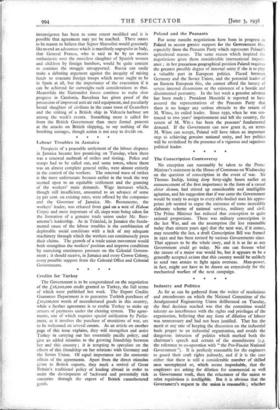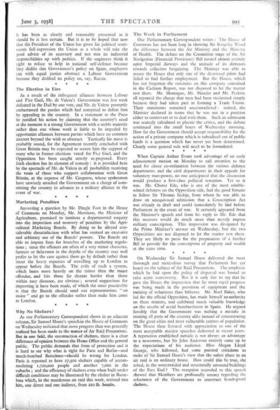Industry and Politics As far as can be gathered from
the welter of resolutions and amendments on which the National Committee of the Amalgamated Engineering Union deliberated on Tuesday, the final decision reached was that the committee would tolerate no inteifeience with the rights and privileges of the organisation, believing that any form of dilution of labour was unnecessary and had not been justified_ That has the merit at any rate of keeping the discussion on the industrial basis proper to an industrial organisation, and avoids the dangerous intrusion of politics which marked both the chairman's speech and certain of the amendments (e.g. the reference to co-operation with the Pro-Fascist National Government "). It is perfectly reasonable for the engineers to guard their craft rights jealously, and if it is the case either that there is still a considerable number of skilled men unemployed or, which seems improbable, that the employers are asking- for dilution for commercial as well as Government work, then the reluctance of the union to relax regulations is intelligible. But it is obvious that the Government's request to the union is reasonable; whether it has been as clearly and reasonably presented as it should be is less certain. But it is to be hoped that now that the President of the Union has given his political senti- ments full expression the Union as a whole will take the good advice of its secretary and not mix its industrial responsibilities up with politics. If the engineers think it right to refuse to help in national self-defence because they dislike this Government's policy on Spain, employers can with equal justice obstruct a Labour Government because they disliked its policy on, say, Russia.



















































 Previous page
Previous page